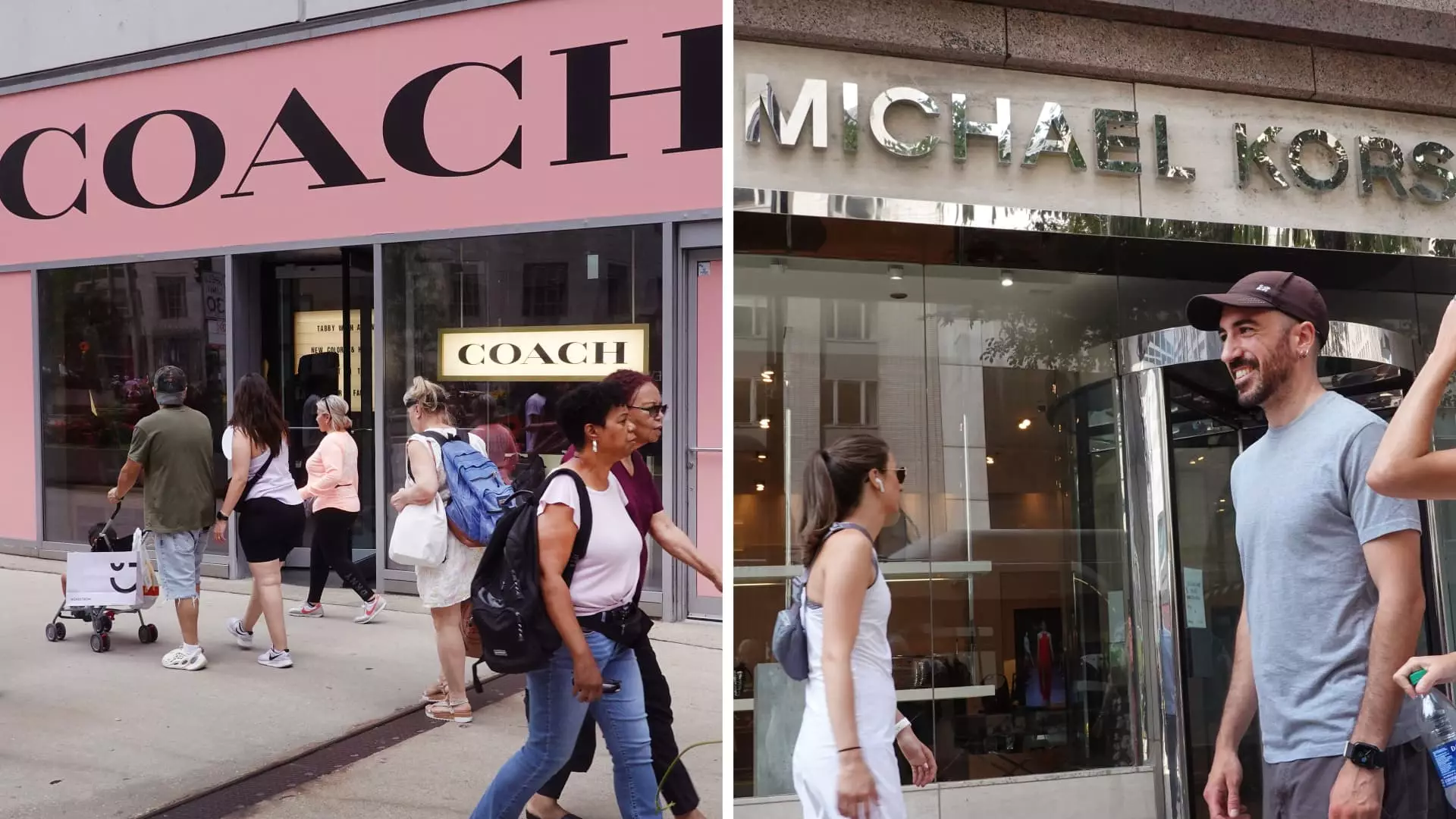The U.S. Federal Trade Commission took a firm stance on Monday by filing a lawsuit to obstruct the $8.5 billion deal between Coach and Kate Spade’s parent company, Tapestry, and Capri Holdings. This move throws a temporary wrench in the plan to merge two prominent names in American luxury retail and consolidate six fashion brands under one umbrella. The partnership would bring Tapestry’s Coach, Kate Spade, and Stuart Weitzman together with Capri’s Versace, Jimmy Choo, and Michael Kors to create a formidable force in the luxury market.
The proposed acquisition, announced by Tapestry in August, sought to enhance the competitiveness of the luxury brands against European counterparts like Burberry and LVMH’s Louis Vuitton. With over $12 billion in annual revenue and a presence in more than 75 countries, the combined entity aimed to expand its customer base worldwide. The deal, anticipated to finalize by 2024, had already secured approval from regulators in Europe and Japan, but faced delays in the U.S. market.
Both Tapestry and Capri have encountered difficulties amid changing consumer preferences and spending habits. Capri, in particular, struggled due to its heavy reliance on department stores and wholesale distribution channels, compared to Tapestry’s more direct-to-consumer approach. Led by CEO Joanne Crevoiserat, Tapestry strengthened Coach’s brand image, attracted younger demographics, and emphasized fashion and brand loyalty over discounts to drive growth.
Tapestry’s stock has risen approximately 10% since the beginning of the year, indicating investor confidence in the company’s strategy and potential. On the other hand, Capri’s stock has faced a decline of around 24% during the same period, reflecting market concerns about its performance and future prospects. The contrasting trajectories of the two companies illustrate the varying levels of success and challenges within the luxury retail sector.
The FTC’s intervention in blocking the luxury retail acquisition raises questions about the competitive dynamics and regulatory scrutiny facing major industry players. The outcome of this legal dispute will impact the future trajectory of both Tapestry and Capri, shaping their strategies and market positioning in the evolving landscape of luxury fashion. As the story unfolds, industry stakeholders and observers will closely monitor developments to gauge the implications for the broader retail industry.


Leave a Reply